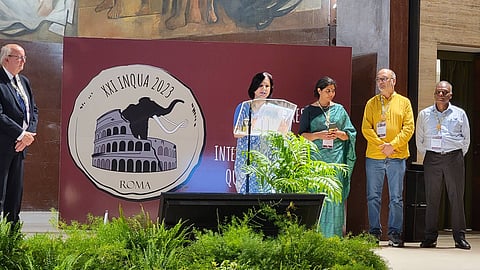In a historic feat, India to play host for INQUA Congress 2027 at Lucknow's BSIP
For the first time, India will play host to the prestigious International Union for Quarternary Research (INQUA) Congress in 2027. This came after India won the bid, pipping 58 countries, to bag the hosting rights of INQUA Congress. The conclave, which is held once in every four years, will take place in all grandeur at Lucknow's Birbal Sahni Institute of Palaeosciences (BSIP) in 2027.
Yet again, another international event will be hosted in the Uttar Pradesh capital, making it a matter of sheer pride and delight.
A boost for young Indian researchers
The bidding was held during the XXI INQUA Congress in Italy's Rome, which concluded on July 20. The Ambassador of India to Italy, Neena Malhorre, delivered the acceptance speech at the event. The next conference, its 100th edition, is all set to be held from February 20-28, 2027 in India.
This outcome will also come as a boost for young Indian researchers working with climate changes and its impact, for the host of opportunities that the conclave will bring with itself.
"Indian science has made a substantive progress in the Quaternary science during recent past via significant contributions to the understanding of the Earth processes with its unique geosciences setting and inherent challenges," BSIP wrote.
"The Subcontinent is home to a large group of geoscientists who are keen to share their experiences with the global community and learn from them. India is the land of rich heritage and great geological, biological and cultural diversity. It’s a temptation for all geoscientists with geology covering most of Earth’s history, encompassing almost every conceivable landform and geological process under extreme climates," it said further.
What is INQUA?
INQUA, founded in 1928, is the global representative body for Quaternary science. It is a network of more than 5,000 scientists, of numerous disciplines, in 50 countries. Moreover, it focusses on the most recent period of Earth history (Quaternary period i.e. the last 2.6 million years). It also studies the interplay between human beings and the contemporary Earth system.
Additionally, it promotes and fosters cooperation of scientists and researchers from institutions worldwide via commissions, meetings and publications. The major research is on applied issues like hazardous geophysical processes, climate and environmental change, along with impacts of the change on humans.
To get all the latest content, download our mobile application. Available for both iOS & Android devices.

